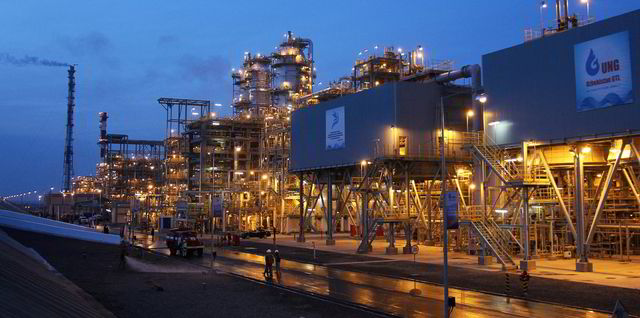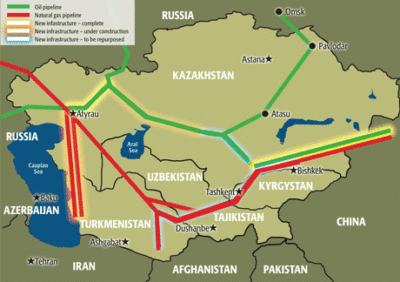 The Uzbek grid prepares to receive gas supplies from Russia
The Uzbek grid prepares to receive gas supplies from Russia
Pakistan’s acute energy crisis is the immediate backdrop against which Foreign Minister Bilawal Zardari’s forthcoming talks with Russian Foreign Minister Sergey Lavrov in Moscow today need to be understood.
But then, Lavrov is a ‘Renaissance man’ in the world of international diplomacy and is sure to synchronise his watch with Zardari’s. For both countries, things have changed, old friends are leaving and life doesn’t stop for anyone.
The Russian Foreign Ministry press release on Zardari’s visit stated tersely, “The foreign ministers will discuss the state of bilateral relations, regional and international issues. Special attention will be paid to the development of trade and economic relations.”
The MFA spokesperson Maria Zakharova subsequently disclosed that the Russian and Pakistani companies are “actively working to resolve the remaining issues” concerning the supply of Russian energy resources to Pakistan. She noted that the payment system is an issue, as Russia wants an arrangement in national currencies “or in the currencies of third countries that are protected from sanctions risks.”
Also, energy cooperation by its very nature involves substantial long-term investments and the fact remains that, as Zakharova put it, “the US currency is a soap bubble, unsecured money that is printed even despite America’s huge public debt.”
Importantly, Zakharova highlighted that the two countries have also decided to “discuss a comprehensive plan for energy cooperation, which provides for the construction of infrastructure and the supply of energy carriers” within a framework that holds the potential to “ensure the sustainable development” of Pakistan’s gas industry. A Russian gas pipeline to Pakistan is in the making.
Zardari’s visit to Moscow comes within 3 weeks of a tripartite gas cooperation arrangement between Russia, Kazakhstan and Uzbekistan making headlines in the news cycle. The termination of Russia’s decades-old energy ties with Europe, including gas supplies via pipelines, motivates Moscow’s search for new markets, Asian markets being a priority.
Thus, late last year, Moscow proposed a gas union with Kazakhstan and Uzbekistan offering to help out the two Central Asian states that are struggling with gas shortages. Earlier this month, Kazakhstan and Uzbekistan signed two separate agreements with the Russian giant Gazprom cementing the new partnership. A new vista is opening for Russia to use the existing gas pipelines in these two countries to export gas to their domestic market in immediate terms.
Albeit in a bilateral format, this arrangement also positions Kazakhstan and Uzbekistan potentially as transit countries enabling Russian gas supplies to the regional and world market, especially China, South Asian countries and the ASEAN region. (Russia has proposed a similar arrangement to Ankara to route its gas to the European market via an energy hub in Turkey.)
All energy projects are “geopolitical,” as the recent destruction of Russia’s Nord Stream pipelines, masterminded by the US, would show. But this one is a “win-win” for both Russia and the two central Asian states, as the income accruing to Kazakhstan and Uzbekistan out of transit fee will be very substantial and long-term, whilst Russia gains access to new markets.

Enter Afghanistan. On January 11-12, Russia’s presidential envoy for Afghanistan, Zamir Kabulov came down to Kabul and held in-depth consultations with the Taliban leadership in pursuit of “Moscow’s unwavering commitment to developing a comprehensive dialogue with Kabul.” The Russian Foreign Ministry press release stated that the focus was on “mutually beneficial cooperation in such sectors as energy, agriculture, transport, infrastructure, industry, mining, in particular, the organisation of regular commercial supplies of Russian fuel and agricultural products to Afghan companies.”
The press release said, “As the situation in Afghanistan stabilises, domestic economic operators may participate in the construction and operation of the Turkmenistan–Afghanistan–Pakistan–India gas pipeline, as well as in the restoration of large infrastructure projects built on the territory of Afghanistan during the Soviet era.”
Most important, the MFA added that “During the consultations, considerable attention was paid to the prospects of political and diplomatic recognition of the current Afghan Government by the international community, including by the Russian Federation.” It concluded that “The leadership of Afghanistan highly appreciates the efforts of the Russian Federation to assist the Afghan people in building a peaceful, independent and economically self-sufficient State.”
Interestingly, in a TV interview soon after his return to Moscow, Kabulov openly alleged that the ISIL in Afghanistan is nothing but an Anglo-American project with an agenda to cause instability in the region. Indeed, the regional setting is changing dramatically. Russia has become intensely conscious of the burden of history and realises the imperative to strengthen its leadership role as the provider of security for the Central Asian region. The western threat to Central Asia and North Caucasus is continuing.
Russia hopes to lead a regional effort to stabilise the Afghan situation and counter extremist groups, which act as a geopolitical tool for Washington. Russia (and China) increasingly deals with the Taliban rulers as the established government of Afghanistan. Fundamentally, terrorism is a major concern for Russia (and China).
Moscow estimates that the Taliban has the political will to act against the ISIS optimally, but lacks the financial resources. To be sure, Afghanistan will figure in Lavrov’s talks with Zardari. India’s National Security Advisor Ajit Doval will also be visiting Moscow shortly for consultations on Afghanistan.
This is an appropriate time for India to improve its relations with Pakistan. Fortuitously, the SCO-related events will bring Pakistani leaders to India. PM Modi has announced that India’s G-20 Presidency “will be grounded in the theme ‘Vasudhaiva Kutumbakam’ or One Earth, One Family, One Future.’” Conceivably, India should invite Pakistan to the G20 Summit in Delhi in September as a special guest.
At a pragmatic level, the TAPI gas pipeline project dovetails with the tripartite gas union that Russia is putting together with Kazakhstan and Uzbekistan. The Russian daily Nezavisimaya Gazeta wrote recently that Moscow has high hopes of extending the Central Asian gas grid to the South Asian region and to the ASEAN region in the medium term.
Andrei Grozin, head of the Department of Central Asia and Kazakhstan at the Institute of CIS Countries and senior researcher at the Institute of Oriental Studies of the Russian Academy of Sciences, told the Russian daily that “This is already a new state policy of Russia, and it is obvious that neither Astana nor Tashkent will be able to refuse to participate in this project. Experts agree that by the middle of this century, Southeast Asia will become the main energy-consuming region. No matter how fantastic the expansion of the gas pipeline network to Afghanistan, Pakistan, India, China may sound now, it will soon become a reality. Therefore, it is necessary to promote our raw materials to the southern markets today.”
Of course, such a mega project will raise hiccups in Washington. It comes as no surprise that the US Undersecretary of state Victoria Nuland (who midwifed the 2014 regime change in Kiev and openly gloats over the sabotage and destruction of Russia’s Nord Stream gas pipeline) is arriving in Delhi this week.
Washington is upset that Western sanctions pressure on Russian oil exports has led to a significant strengthening of India’s energy ties with Russia. Not only is Russian crude sold to India twice as cheap as world analogues, but the Russian production of petroleum products is actually transferred to India.
After the entry into force of the European embargo on Russian oil products w.e.f February 5, India is set to become the main supplier of refined Russian oil to Europe with a potential export turnover in tens of billions of dollars. (Please see Russia gives India the supply of Europe with petroleum products, Nezavisimaya Gazeta, Jan. 16, 2023) Exports of diesel fuel from India are already increasing.
Technically, this does not violate EU sanctions against Russia. But it annoys the Biden Administration, which had anticipated that there would be potential to boost US exports to replace Russian petroleum products in the lucrative European market.
The US will be uneasy about a “gas union” betwixt Russia, Pakistan and India. But India has vital interests in safeguarding its energy security. The western hegemony in the world order is ending. Russia’s “gas union” in Central Asia signals that the time has come for regional states in South Asia to respond with a unity of purpose.
